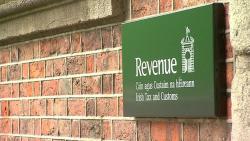
Background (Legislative)
All Irish companies are required by legislation (which came into effect in November 2016) to establish and maintain a “Register of Beneficial Owners”. This includes charities and non-profits which are “Companies Limited by Guarantee” (CLGs). This blog is written specifically for charities which are “CLGs”.
Purpose of Central Register
The purpose of the Central Register is to provide a central register of beneficial ownership of companies and industrial and provident societies.
Who has access to the Central Register?
The Central Register can be accessed by:
-
Criminal Assets Bureau;
-
Revenue Commissioners
-
Gardai Síochána
-
Office of Director of Corporate Enforcement
-
General Public (a Beneficial Ownership Report can be requested)
How to identify Beneficial Owner?
Definition of a beneficial Owner
“any natural person who ultimately owns or controls a legal entity through direct or indirect ownership of a sufficient percentage of the shares or voting rights or ownership interest in the relevant entity, or through control via other means”.
However, charities who are CLGs, don’t have beneficial owners in the conventional sense. The assets of the charity are held for its charitable purpose and the charity is run for the benefit of its beneficiaries. All CLGs are still legally obliged to submit the prescribed information to the Central Register. They are also required to hold an internal “Register of Beneficial Ownership”. The definition does not take into account that “ownership” or voting rights and so forth are solely for the benefit of the beneficiaries of the charity (it’s charitable purpose) and not in the interests of individual members.
Consequently, your charity needs to interpret this definition to establish how the legislation applies to and which individuals need to be classified.
The legislation determines that an “ownership” of over 25% defines a beneficial owner. Members of a CLG are determined to be the owners as they exercise control over the CLG by way of their right to vote at AGMs.
Three Members or less
Members are likely to qualify as “beneficial owners” if a CLG (charity) has three or less members. This is because each member has more than 25% of the voting rights. In this instance, details of the three members must be submitted to the Central Register and recorded on the company’s Internal Register of Beneficial Ownership.
Four Members or more
Most charities which are CLGs, have four or more members. The charity must diligently review whether there any individual (s) exercise indirect or direct voting rights or control over the charity. Check your Constitution and any other legal agreements in place to clarify membership). If any individual, other than a member or a senior managing official exercises control, they need to be recorded as a “Beneficial Owner”. The charity may not be able to identify a beneficial owner (having checked the Constitution and other agreements), because there are four or more members or control and voting rights are not exercised by other individuals.
In the majority of instances however, CLGs need to file prescribed information on their “Senior Managing Officials” on the Central Register of Beneficial Ownership and on an Internal Register of Beneficial Ownership.
A Senior Managing Official includes the Directors and the Chief Executive Officer.
Details to be filed on the Central Register
The prescribed information required for each Managing Official:
Name
Residential Address
Nationality Date of Birth
PPS Number
Nature and extent of the Interest held or control exercised (an opportunity to record the charitable status of the CLG)
Date the individual was added to the Register
Date of cessation on the Register
PPS number entered in the RBO portal must match the name as registered on their PPSN with the Department of Employment and Social Protection. The information is not verified against the Revenue Commissioners records. For example: “Paddy” might be recorded with DEASP as “Pat”, Patrick” etc
You can ring DEASP at 1890 927 999 to check the exact name you’re registered with DEASP (for PPSN)
In the unlikely event a Managing Official does not have a PPS number, they are required to complete a BEN2 Form (to verify their identity) which must be legally authenticated. Further information on BEN2 is here.
Maintain up-to-date details on the Central Register
It’s critical to keep the information up-to-date. Any changes to the Beneficial Owners must be recorded on the Central Register and also on the charity’s Internal Register of Beneficial Ownership.
Penalties for non-compliance
Legal entities (charities not exempt) who do not file are guilty of an offence and be liable on summary conviction to a Class A fine of up to €5,000 and on conviction on indictment to a fine of up to €500,000.









